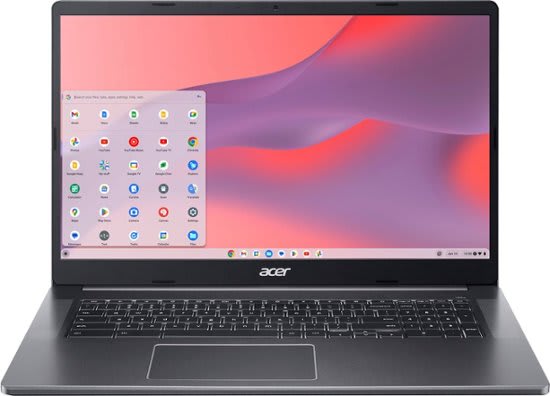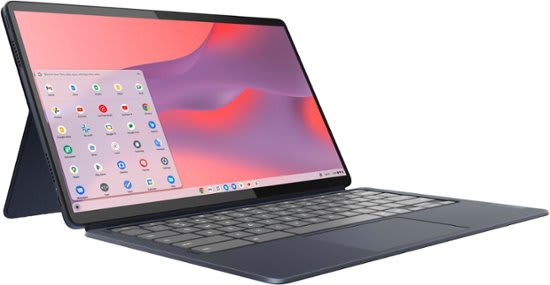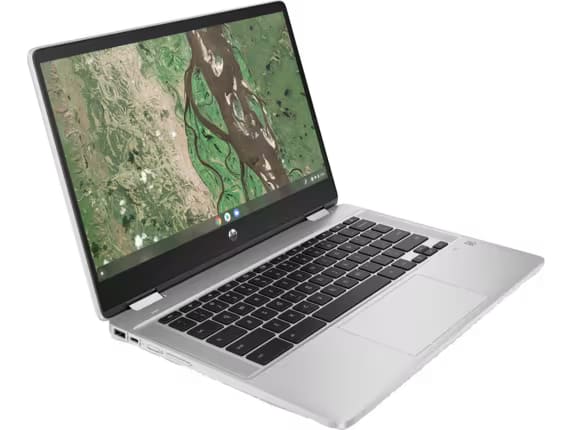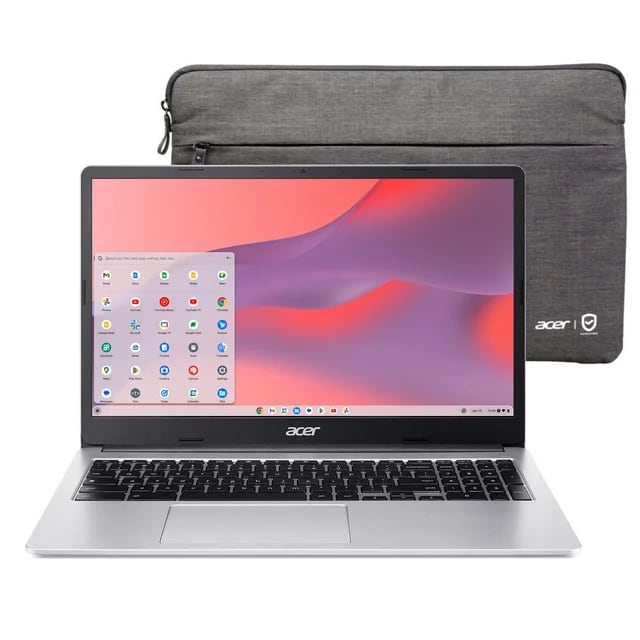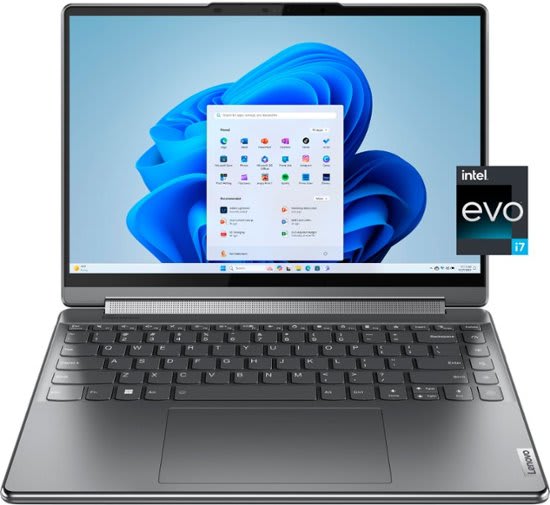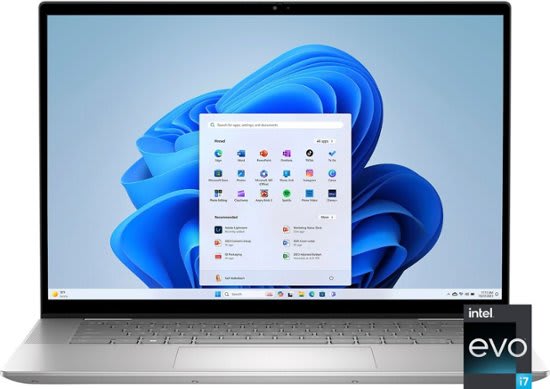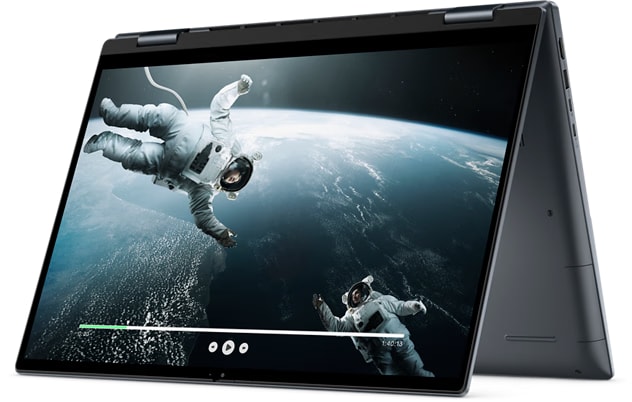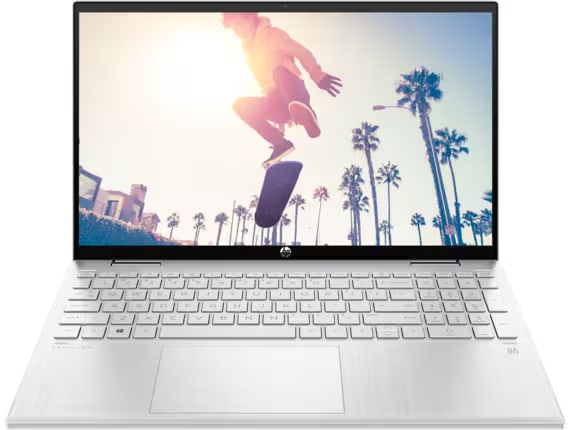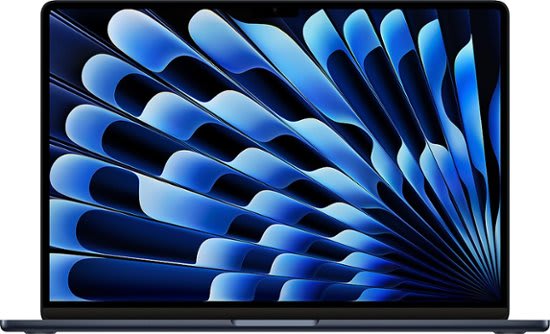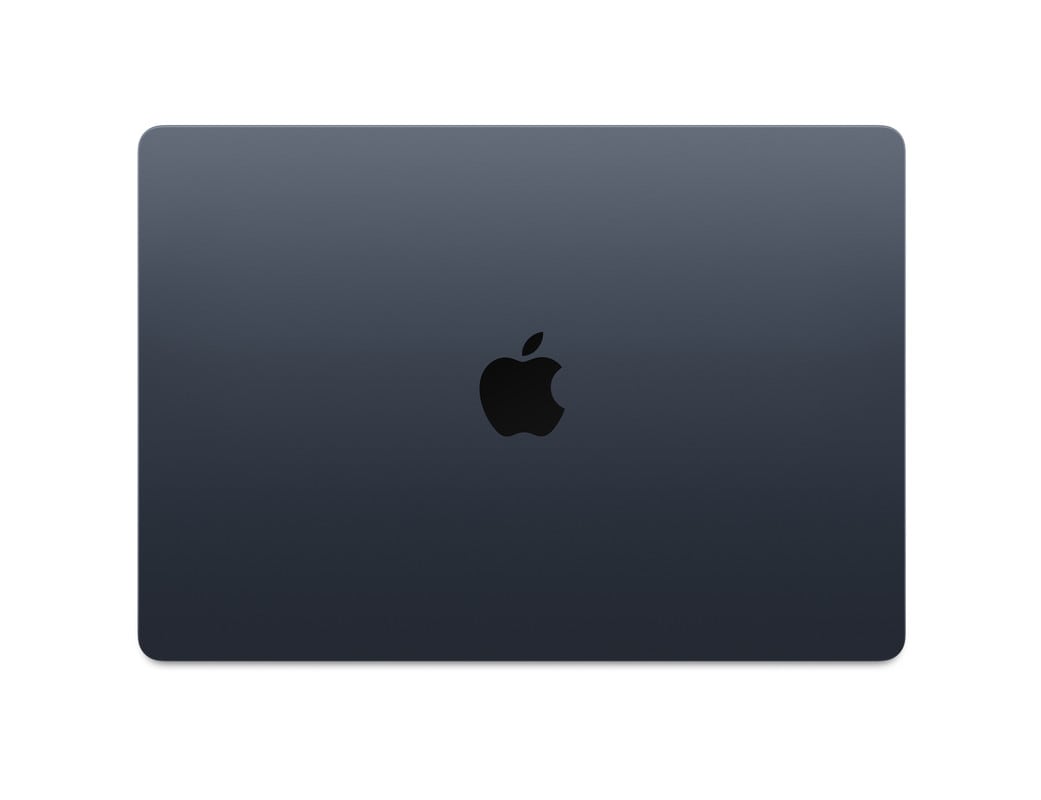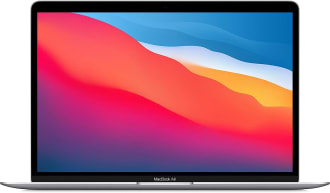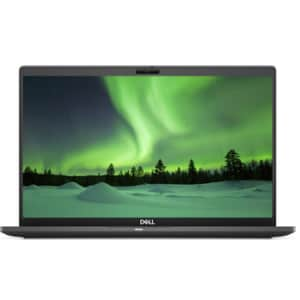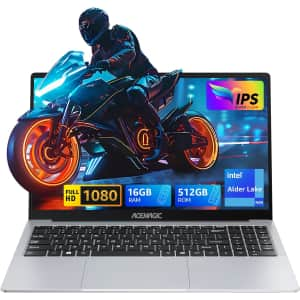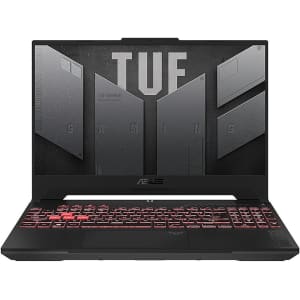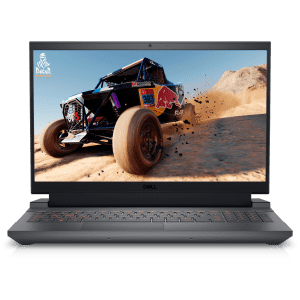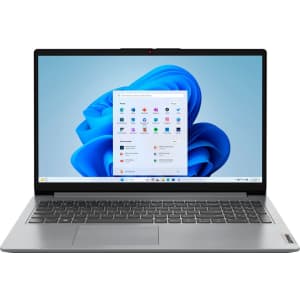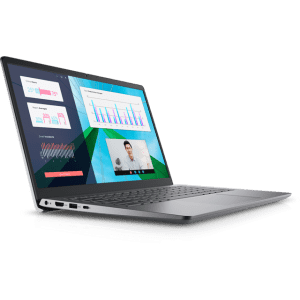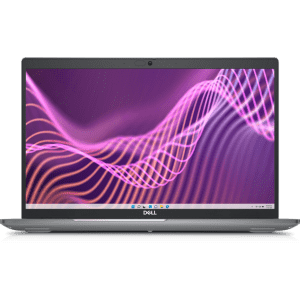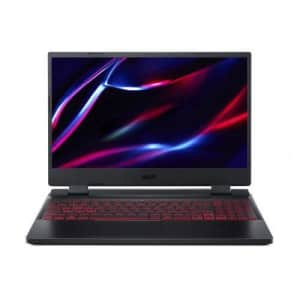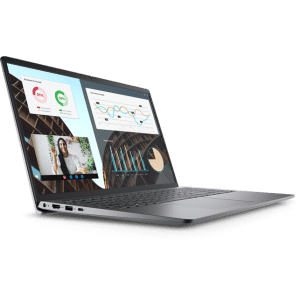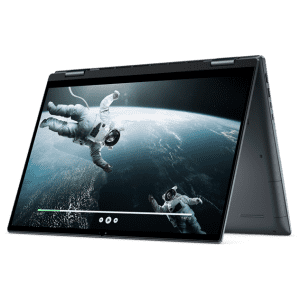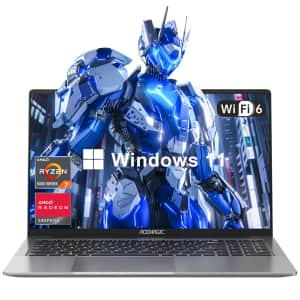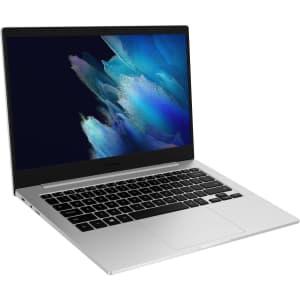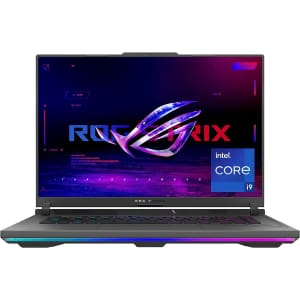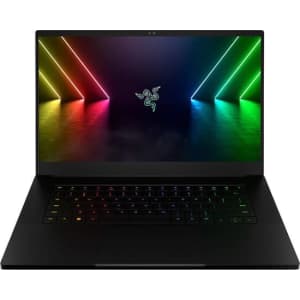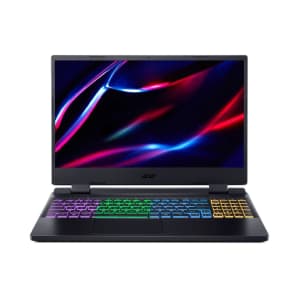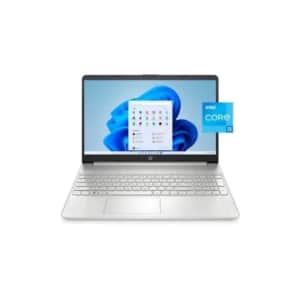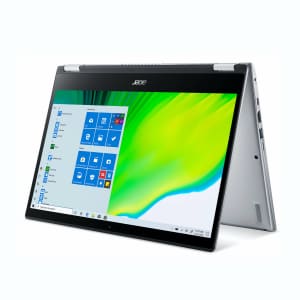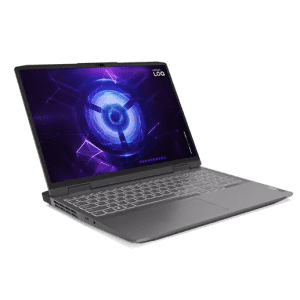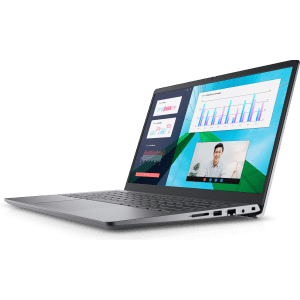Laptops: The Basics
Buying a new laptop can be tricky. There’s a myriad of manufacturers, specs, operating systems, and a revolving door of new releases and updates to keep track of. The first and most important thing you should consider when purchasing a laptop is, “What is the primarily use for my laptop?”
Once you answer this question, the field narrows, and you can start hunting for the best laptop deals on the perfect laptop for you . To get you started, here are a few ways you might use a new laptop:
Types Of Laptops
Ultrabooks/Ultra-Thin Laptops: Design: Slim and lightweight, less than 0.7 inches thick, 2-3 pounds, prioritize portability and aesthetics. Use Case: Ideal for professionals and students needing portability for productivity tasks, web browsing, and general computing with good battery life and fast performance.
Gaming Laptops: Design: Bulkier and heavier with powerful hardware, often featuring RGB lighting and an aggressive design. Use Case: Designed for gamers, equipped with high-end CPUs and GPUs for graphically demanding games, high-refresh-rate displays, and advanced cooling systems.
If you often find yourself switching between machines at work and at home, or working remotely, looking for a laptop sale with better hardware may be in your best interest. Be sure to shop for a laptop with hardware that meets or exceeds the minimum specifications for any program or application you use frequently. In addition, choosing a laptop with a screen size of at least 15" may improve your workflow and productivity. Some popular options include the MacBook Pro, and offerings from HP, Lenovo, and Dell.
2-in-1 Laptops (Convertible or Hybrid Laptops): Design: Flexible design for use as both traditional laptops and tablets, featuring detachable screens or 360-degree hinges. Use Case: Versatile for users wanting both laptop and tablet functionality, ideal for artists, students, and professionals needing touchscreen capabilities and stylus support.
Business Laptops: Design: Professional and durable, often with understated aesthetics, prioritizing security features. Use Case: Geared towards professionals and corporate users, built for productivity and security with features like fingerprint scanners, TPM chips, and robust management options.
Workstation Laptops: Design: Larger and heavier with high-performance components, resembling gaming laptops but for professional-grade tasks. Use Case: Ideal for engineers, architects, content creators, and researchers needing substantial computing power for tasks like 3D modeling, CAD, video editing, and scientific simulations.
Chromebooks: Design: Budget-friendly laptops running Google's Chrome OS, generally lightweight with a simplified design. Use Case: Designed for users relying on web apps and services, great for web browsing, email, document editing, and educational purposes.
Budget Laptops: Design: Cost-effective with modest design and build quality. Use Case: Targeted at price-conscious consumers, suitable for everyday tasks like web browsing, word processing, and light media consumption with basic performance.
Rugged Laptops: Design: Built to withstand harsh environments and physical stress, featuring reinforced casings and often water and dust resistance. Use Case: Used in industries like construction, fieldwork, and the military where durability and reliability are crucial.
Student Laptops: Design: Typically affordable and lightweight with features like long battery life and durability. Use Case: Designed for students, suitable for research, note-taking, and homework, often equipped with educational software and features.
All-in-One PCs: Design: Compact desktop computers with integrated display and components. Use Case: Ideal for home and office setups with limited space, offering a clutter-free design and suitable for general computing tasks.
If your main use will be primarily browser-based, you can find great deals on smaller laptop systems, including inexpensive Windows laptops, Chromebooks, and the MacBook Air. Such machines are also suitable for many students.
Replacing a Desktop Computer for Work
If you often find yourself switching between machines at work and at home, or working remotely, looking for a laptop sale with better hardware may be in your best interest. Be sure to shop for a laptop with hardware that meets or exceeds the minimum specifications for any program or application you use frequently. In addition, choosing a laptop with a screen size of at least 15" may improve your workflow and productivity. Some popular options include the MacBook Pro, and offerings from HP, Lenovo, and Dell.
Frequently Asked Questions
How do I choose an operating system?
Chances are, you’ve already decided whether you’re looking for a Mac or a Windows machine, as this decision typically comes down to personal preference and history. The majority of the most popular programs and applications are available on both Apple OSX and Microsoft Windows 10, so you shouldn’t have too much difficulty sharing data. Here’s a brief rundown of the most popular options available:
Easily the largest category in terms of manufacturers and hardware options, Windows laptops will commonly be using a version of Microsoft’s latest operating system, Windows 10. Models run the gamut from basic 11” netbooks to ultra-high-end 17” business workstations or specialty gaming machines with dedicated graphics cards and high resolution displays.
Unsurprisingly, this expansive category also sports a wide range of prices. With near-constant releases of newer and faster hardware, many laptop manufacturers release new top-of-the-line laptop models regularly. Some of the best laptop deals are for previously released models.
Apple released its first MacBook laptop in 2006, and quickly established itself as one of the most popular options for many laptop buyers. (Indeed, stopping at your local coffee shop on a busy day can look like a veritable orchard of glowing Apples.) Considered to be one of the more expensive options, MacBooks also have some of the longest lifetimes among laptops.
There are three types: MacBook, MacBook Air, and MacBook Pro. The MacBook Air, a slimmed-down notebook, offers incredible portability. The MacBook Pro — generally packed with some of the newest hardware available — is aimed towards creative professionals and heavy users. The original MacBook (currently out of production) usually strikes a balance between the Air and Pro. It’s more expensive, but more powerful, than the Air, and cheaper (and less powerful) than the Pro.
With aluminum unibody frames and high-quality displays, all MacBook variants tend to hold their value longer than their PC counterparts. Although, with frequent releases featuring new hardware (generally two to three times per year), great deals can always be found on refurbished and previous-year models.
First introduced in 2011, these machines run Google’s Chrome OS. As one might imagine from the name, they’re based around Google’s Chrome web browser. They can handle all the common apps you can find in the Google Play store, and the bulk of application and user data is stored in the cloud.
These often inexpensive laptops are great options for students and folks that don’t require the sheer processing power of traditional laptops. Chromebooks still offer the most common computing tasks — email, web browsing, spreadsheets, media playback, and more — all within the Google ecosystem. Popular Chromebook manufacturers include (unsurprisingly) Google, Dell, Samsung, and Acer.
What size laptop should I choose?
Again, think of your main uses of this laptop. If it’s meant to replace your desktop or will be your main computer, looking at a 17” might make your workflow easier. On the other side of things, if this is a notebook you’ll be tossing in a backpack and commuting with, perhaps a 11” or 13” model will make your life easier.
How much should I spend on a laptop?
In general, you should consider spending a little more to future-proof your laptop purchase. Component manufacturing continues to evolve at a rapid pace, and software developers continue to update their applications. All computers will eventually reach the end of their useful life, as their hardware falls under the minimum requirements.
Generally speaking, the more budget you can put towards better specs, the longer your machine will be able to run the newest programs. That being said, many Windows laptops allow user-replaceable upgrades, including RAM and hard drives, which can extend the lifespan and bring down that initial price.
What laptop accessories do I need?
While perfectly usable as-is, it’s important to consider some accessories that may make using your laptop easier. Typically, you’ll want a mouse, USB thumb drives or external hard drives, and a laptop case or backpack. If you’re using your new laptop at home, a secondary monitor can be another good choice.
How do I get the best laptop deals?
Here at DealNews, we find new laptop deals every day. Once you've decided on a few key laptop specs that are must-haves for you, you can peruse these deals to find a model that fits your needs and falls in your desired price range. We post cheap laptops under $200, budget-friendly models under $500, and discounts on higher-end systems.
If you don't see a deal on the build you want, do some internet research to find current pricing at the stores that sell it, and then search for coupon codes. Retailers like Lenovo and Dell regularly offer promo codes, which can reduce the price significantly. From there, you can determine which store offers the lowest price, and whether you should act on that price now or wait for a better time to buy.
Speaking of when to buy, we see a higher number of laptop sale prices during certain times of the year. We typically list up to 300 laptop deals per month, but this number spikes during the holiday shopping season in November and December. You're more likely to find a good deal during this time. We've also seen an uptick in July previously, likely for Back to School shopping.
Another way to save is to buy a refurbished model . Retailers like Dell Refurbished Store and Apple can offer quality refurbs at lower prices than those for new items, plus Dell Refurbished often has coupon codes that take up to 60% off. When making a purchase, review the item's condition, warranty, and return policy carefully, in case you run into any issues.
What Factors Should Be Considered When Looking at Laptop Deals?
Processor Speed Laptop processor speed is a critical factor that determines the performance and capabilities of a laptop computer. The processor, often referred to as the CPU (Central Processing Unit), is the brain of the computer, responsible for executing instructions and performing calculations. The speed of a laptop processor is typically measured in gigahertz (GHz), and it represents how many cycles or instructions the CPU can execute per second. The higher the processor speed, the faster a laptop can perform various tasks.
Here are some key points to consider about laptop processor speed:
Types of Processors: There are various types of laptop processors available, including those from Intel (Core i3, i5, i7, i9) and AMD (Ryzen series). These processors come in different configurations, with varying numbers of cores and clock speeds. More cores and higher clock speeds generally result in better performance.
Performance Impact: Processor speed directly impacts the overall performance of a laptop. Faster processors can handle demanding tasks like gaming, video editing, 3D rendering, and software development more effectively. Slower processors are suitable for basic tasks like web browsing, word processing, and email.
Multitasking: A high processor speed is essential for multitasking. If you frequently run multiple applications simultaneously, such as having multiple browser tabs open while editing documents and streaming videos, a faster processor will help maintain smooth performance.
Gaming: Gamers often require laptops with high processor speeds, as modern games demand substantial computational power. A fast CPU can handle complex physics calculations, AI, and rendering tasks, resulting in better gaming experiences.
Content Creation: Professionals engaged in content creation, such as graphic designers, video editors, and 3D artists, benefit from laptops with high processor speeds. These tasks involve manipulating large files and require significant computing power.
Data Analysis: Data scientists and analysts who work with large datasets and run complex algorithms rely on powerful processors to perform computations quickly and efficiently. Faster CPUs can significantly reduce the time required for data analysis.
Engineering and CAD: Engineers and architects who use software for computer-aided design (CAD) and simulations need laptops with fast processors to handle the intensive calculations required for their work.
Software Development: Developers who work on resource-intensive projects, compile code, and run virtual machines often prefer laptops with high processor speeds for faster development and testing.
General Use: For everyday tasks like web browsing, watching videos, and using office applications, a high-end processor may not be necessary. Most mid-range laptops with average processor speeds are more than capable of handling these activities.
Battery Life: It's worth noting that laptops with high processor speeds tend to consume more power, which can affect battery life. Users who prioritize longer battery life may opt for laptops with more power-efficient processors.
Hard Drive Type
Hard Disk Drive (HDD): HDDs are traditional, mechanical hard drives that use spinning disks and a read/write head to store and retrieve data. They offer large storage capacities at a lower cost per gigabyte, making them suitable for users who require ample storage for files, documents, and media. However, HDDs are slower than solid-state drives (SSDs) and are more susceptible to physical damage due to their moving parts. They are commonly found in budget laptops or laptops designed for mass storage needs.
Solid-State Drive (SSD): SSDs are a more modern and popular storage choice for laptops. They use flash memory chips to store data, resulting in significantly faster read and write speeds compared to HDDs. SSDs improve overall laptop performance, including boot times, application loading, and file transfers. They are also more durable and energy-efficient than HDDs. While SSDs tend to be more expensive per gigabyte, their speed and reliability make them a preferred choice for most laptops, especially those geared toward performance and portability.
Hybrid Drive (SSHD): SSHDs combine the advantages of both HDDs and SSDs. They have a small SSD cache (usually around 8-32GB) for frequently accessed data and a larger HDD portion for bulk storage. This hybrid approach aims to offer improved performance compared to pure HDDs while still providing a sizable storage capacity. SSHDs are a compromise solution for those who want faster performance without sacrificing too much storage space.
eMMC (Embedded MultiMediaCard): eMMC is a type of flash storage commonly used in budget and lightweight laptops. It's soldered directly onto the laptop's motherboard, which reduces cost and power consumption but also limits storage capacity and performance. eMMC storage is similar to what you find in smartphones and tablets and is suitable for basic computing tasks like web browsing and document editing.
NVMe SSD: NVMe (Non-Volatile Memory Express) SSDs are an advanced type of SSD that uses the PCIe (Peripheral Component Interconnect Express) interface to deliver even faster data transfer speeds compared to SATA SSDs. They are often found in high-end laptops and gaming laptops, providing exceptional performance for demanding applications, including gaming, content creation, and data-intensive tasks.
In summary, the choice of hard drive type for a laptop depends on your specific needs and budget. HDDs offer ample storage at a lower cost but are slower and less durable than SSDs. SSDs provide faster performance and are the preferred choice for most laptops, offering a significant boost in speed and responsiveness. Hybrid drives offer a compromise between speed and storage capacity. eMMC storage is suitable for budget laptops with basic computing needs, while NVMe SSDs are ideal for high-performance laptops. Consider your usage requirements when selecting the right hard drive type for your laptop.
RAM
RAM (Random Access Memory) in laptops is a critical component that directly impacts system performance and multitasking capabilities. Here's a brief expansion on RAM in laptops:
Role of RAM: RAM serves as the temporary working memory for your laptop. It stores data that the CPU is actively using or processing. The more RAM you have, the more applications and data your laptop can efficiently handle simultaneously.
RAM Size: Laptops typically come with a range of RAM sizes, commonly 4GB, 8GB, 16GB, or 32GB. The ideal amount of RAM depends on your usage needs. Basic tasks like web browsing and word processing can be handled with 4GB or 8GB, while more demanding tasks like video editing or running virtual machines benefit from 16GB or more.
Upgradability: Some laptops allow you to upgrade or expand the RAM after purchase, while others have soldered RAM that cannot be upgraded. If you anticipate needing more RAM in the future, consider a laptop with user-upgradeable RAM.
RAM Type and Speed: RAM comes in different types (e.g., DDR3, DDR4, DDR5) and speeds (measured in MHz). The type and speed of RAM can affect overall system performance, but the impact is often minimal for typical users. Gamers and professionals in specific fields may pay more attention to RAM speed.
Multitasking: More RAM enables smoother multitasking. If you frequently run multiple applications, have numerous browser tabs open, or work with large files, a laptop with ample RAM is essential to prevent slowdowns and improve productivity.
Gaming: Gaming laptops often come with 16GB or more RAM to handle the demands of modern games, which require substantial memory for graphics and game assets.
Content Creation and Productivity: Professionals in content creation, video editing, 3D rendering, and data analysis benefit from laptops with 16GB or higher RAM, as these tasks require substantial memory for efficient performance.
Future-Proofing: As software and applications become more resource-intensive, laptops with more RAM can remain relevant for a longer time, reducing the need for frequent upgrades.
Operating System: The choice of the operating system also affects the RAM requirements. For example, Windows laptops generally benefit from more RAM compared to Chromebooks or lightweight Linux distributions.
Bluetooth Compatibility
Bluetooth connectivity in laptops offers wireless convenience for connecting to a wide range of compatible devices such as headphones, speakers, mice, and keyboards. It involves the pairing of devices, typically within a 30-foot range, and supports file transfer, audio streaming, and peripheral management through laptop settings. Bluetooth connections are generally secure and have minimal impact on battery life, making them a convenient and versatile feature for users looking to simplify setups and reduce cable clutter in their computing experience.
SSD Capacity
Laptop SSD capacity is a critical aspect of your storage solution, and it plays a significant role in determining your computing experience. Here's a more detailed expansion:
Storage Sizes: Laptop SSDs come in a wide range of storage capacities, starting from compact 128GB options and scaling up to capacious 4TB or even higher capacity models in premium laptops. The choice of capacity depends on your specific storage requirements, which can vary considerably based on your usage patterns and profession.
Operating System and Software: Your laptop's operating system (such as Windows, macOS, or Linux) and installed software consume a portion of the SSD's capacity. For most users, a starting point of 256GB to 512GB SSD capacity is recommended to comfortably accommodate the OS and commonly used applications without running out of space.
File Storage: The remaining SSD capacity is available for storing your files, including documents, photos, videos, music, and any other personal or professional data. The amount of storage you need for these files depends on their volume and size. A capacity of 512GB to 1TB is often sufficient for many users to store their files.
Multimedia and Creative Work: Professionals who work with multimedia files, such as video editing, 3D modeling, or high-resolution photography, often require larger SSDs, typically in the 2TB range or more, to accommodate the significant storage demands of their projects.
Gaming: Gamers who download and install modern games should consider substantial SSD space, as many games can occupy 50GB or more of storage. A 1TB SSD or larger is ideal for building a sizable gaming library.
Cloud Storage: Evaluate whether you rely on cloud storage services (e.g., Google Drive, Dropbox, OneDrive) for offloading some of your data. This can help extend your SSD's capacity without the need for a larger internal drive.
Future Needs: While choosing SSD capacity, it's prudent to think about your future storage needs. As your data accumulates over time, having extra storage space can prevent the need for upgrading to a larger SSD later on, saving you time and money.
Budget: Keep in mind that larger SSD capacities tend to be more expensive. If budget constraints are a concern, you might start with a smaller SSD and use external storage solutions (e.g., external hard drives or SSDs) for additional space when required.
Upgradability: Some laptops allow users to upgrade the internal SSD, while others have soldered SSDs that cannot be replaced. If you anticipate needing more storage in the future, consider choosing a laptop with upgradeable storage options to ensure flexibility.
SSD Type: It's also important to note that SSDs come in different types, such as SATA SSDs and NVMe SSDs. NVMe SSDs are faster than SATA SSDs and are preferred for tasks that require high-speed data transfer, such as video editing or gaming.
Graphics Processor
Graphics processors, also known as GPUs (Graphics Processing Units), are vital components in laptops responsible for rendering images, videos, and 3D graphics. They come in two primary forms:
Integrated Graphics: Integrated GPUs are built into the laptop's CPU or motherboard. They are energy-efficient, suitable for everyday tasks, and help extend battery life. However, they are less powerful than dedicated GPUs and may struggle with demanding graphics tasks like gaming or video editing.
Dedicated Graphics: Dedicated GPUs are separate, standalone graphics cards with their dedicated VRAM (Video Random Access Memory). They offer superior performance and are essential for tasks like gaming, content creation, and 3D modeling. Laptops with dedicated GPUs tend to be larger and heavier due to increased power and cooling requirements.
The choice between integrated and dedicated graphics depends on your usage. Integrated graphics are suitable for regular office work and web browsing, while dedicated graphics are a must for gaming and graphics-intensive professional work. Some laptops offer a hybrid solution, where you can switch between integrated and dedicated graphics for optimal performance and battery life, catering to a broader range of needs.
Ports
Laptops come equipped with a variety of ports that serve as essential interfaces for connecting peripherals and external devices. Here's an expanded overview of some common types of laptop ports:
USB Ports: USB (Universal Serial Bus) ports are among the most versatile and prevalent laptop ports. They come in various generations, including USB-A, USB-C, and USB 3.0/3.1/3.2, with varying data transfer speeds. USB ports allow you to connect a wide range of devices such as external hard drives, flash drives, keyboards, mice, printers, and more. USB-C, in particular, is versatile, supporting data transfer, power delivery, video output, and more.
HDMI Port: HDMI (High-Definition Multimedia Interface) ports are commonly found on laptops and serve to connect your laptop to external displays, including monitors, TVs, and projectors. HDMI provides high-quality audio and video output, making it ideal for presentations, gaming, and multimedia playback.
DisplayPort: DisplayPort is another video output port that offers high-quality audio and video transmission. It's often found on laptops used for professional tasks, such as graphic design and video editing, as it supports high-resolution displays and multiple monitors.
Audio Ports: Laptops typically feature a combination headphone/microphone jack (3.5mm audio jack) for connecting headphones, microphones, or external speakers. Some laptops may include separate audio-in and audio-out ports for greater audio connectivity options.
Ethernet Port: An Ethernet port allows you to connect your laptop to a wired network for faster and more reliable internet access. While Wi-Fi is prevalent, Ethernet is valuable for scenarios where a stable, high-speed connection is essential, such as online gaming or data-intensive tasks.
SD Card Slot: Many laptops come equipped with an SD card slot, which is handy for photographers, videographers, and anyone who needs to transfer files from SD cards, such as camera memory cards, directly to their laptop.
Thunderbolt Port: Thunderbolt ports (often using USB-C connectors) provide high-speed data transfer, power delivery, and support for connecting multiple devices in a daisy-chain configuration. They are common on premium laptops and are valuable for professionals working with high-resolution media files and external GPU setups.
VGA Port: Although becoming less common, some laptops may still include a VGA (Video Graphics Array) port for connecting to older projectors and monitors that lack HDMI or DisplayPort compatibility.
Kensington Lock Slot: This security slot allows you to physically secure your laptop using a Kensington-style lock. It's commonly found on business laptops and is useful for preventing theft in public or office settings.
USB On-the-Go (OTG): Some laptops support USB OTG, allowing you to use USB ports to connect and charge mobile devices like smartphones and tablets.
Power Port: Laptops have a dedicated power port where you plug in the charger to recharge the laptop's battery. The type and design of power ports can vary between laptop brands and models.
SIM Card Slot: Some laptops, particularly 2-in-1 or ultraportable models, come with a SIM card slot for cellular connectivity, enabling internet access on the go without relying solely on Wi-Fi.
The availability and type of ports on a laptop can vary significantly based on the laptop's brand, model, and purpose. When choosing a laptop, it's essential to consider your connectivity needs and ensure that the laptop has the necessary ports to support your intended usage and any peripherals or accessories you plan to use.
What are the best laptop deals for Black Friday?
Our Blog article on Black Friday laptop predictions covers what we expect to see in pricing for the holiday shopping season, and we update it to reflect actual pricing from the Black Friday ads once they're released. The article features our picks for the best laptop deals from the ads.
Last Black Friday season, we saw Chromebooks for as low as $89, which beat our $99 prediction. The budget laptops in our top-picks list were priced from $130, and our other top PC picks were as low as $499; that price was for a 9th-gen Intel Core i5 model with a 256GB SSD. MacBook deals weren't as abundant, but we did see a current-gen MacBook Pro for $1,000, which was $180 less than what other stores were charging at the time.
What are the best laptop deals today?
Every day, we list the very best deals we find on laptops. When we list a deal for a product, we make sure that it's the lowest price available on the internet for that model. You can browse our laptops category to view all of our top offers, or use the filters at the top of the page to narrow in on certain criteria.
We typically see the most laptop deals from these stores:
We see the highest number of deals for these brands:
You can also shop by various features, including:
Where do I buy cheap laptops?
Our deals include laptops under $200 and laptops under $500 . We most commonly see laptops for sale at these low prices in the following stores:
If you want to be notified when we list new laptop deals that go under a certain price point, you can set up a deal alert . Use "Computers > Laptops" for the category and enter a desired price range. You can even add other criteria, such as brand or keyword.
What is the cheapest good laptop?
This will depend on how you intend to use the laptop. If you only need it for light applications, such as checking email and browsing the internet, you can spend a lot less without experiencing significant performance issues. We've seen Chromebooks and budget laptops from under $100.
Buying an inexpensive laptop will involve certain trade-offs. These machines are typically equipped with lower-end processors and RAM, which should generally suffice outside of heavy multitasking. You may see a slowdown when running several programs or browser tabs at once. Internal storage will likely be on the smaller side, as well. But, when budget is the primary driver of the purchase, a low-priced laptop can certainly be a good option for light or moderate use.
If you need more robust performance, you can shop models with upgraded processors, such as Core i5 , Core i7 , or later model/gen AMD Ryzen . You'll likely spend at least $500 for these builds, but they'll have increased processing power, and more RAM and storage. Gaming laptops will feature specs that appeal to gamers, such as upgraded graphics cards.
What is the best laptop under $200?
Many of the laptops under $200 deals that we list are Chromebooks. Premium versions of these machines are available for much higher prices, but Chromebooks are generally known for being inexpensive, and certain models can drop under $200 when deals are available. We've seen sub-$200 new or refurbished models from brands like Samsung, Lenovo, Acer, and HP.
Chromebooks in this price range generally have 4GB of RAM, 16GB of flash storage, and budget processors. We also come across some sub-$200 laptops that aren't Chromebooks, such as Evoo laptops. With these, you're likely to see about the same in specs, but may get a boost in internal storage. We've seen models with 32GB mostly, but even up to 128GB on a Black Friday deal item.
What is the best laptop under $500?
When you peruse the laptop deals under $500 on our site, you can expect more options compared to the $200-or-less category discussed above. You'll also see various upgrades over the cheapest models, like improved processors and more RAM and storage space. They make the computer more likely to handle increased processing tasks without slowing down, although these models can still have budget processors.
Under $500 is a price point where a few trade-offs are still made to save extra money, but you can get solid value in this category, and a machine that will meet most mainstream computer needs. You'll even see a few extra perks with some models, like 2-in-1 capabilities or touchscreens. Like the sub-$200 category, you'll find a variety of Chromebooks here, as well, but they'll be a bit more equipped.
Which laptop brand is best?
Some brands are more popular with our readers. Deal popularity can have a lot to do with the actual discount or pricing for a particular item, but the following brands tend to generate the most interest overall:
Of course, the actual models produced by these brands can vary. Consider the strength of the brand when shopping for laptops, but also check for information on the specific model you intend to purchase. Other big brands are solid contenders, too, including Microsoft .
We've also listed deals for low-cost builds from brands like Evoo that were fairly popular with readers. At a cheap price compared to other options, it may be worth trying something less familiar. But you won't find as much information about this brand on the internet compared to major names. For some, going with a lesser-known brand isn't worth the risk, even if the price is lower.
Is it worth buying cheap laptops?
Buying a cheap laptop can make sense if you plan to use it for browsing the web, checking email, and other light productivity tasks, and you don't need to store much on the machine. A very inexpensive model will have some compromises in the specs. The builds in our laptops under $200 category contain budget processors and low amounts of RAM and storage space. These can lead to slower running times when the computer is put under increased demand — for instance, when running multiple programs or browser tabs at once. But, an inexpensive laptop can be worth buying if you're on a tight budget and aware of the potential limitations. You can also check for refurbished laptops , as you might get a few upgraded features for the money, given that the items aren't new.
What is the best month to buy a laptop?
It's no surprise that we find the most laptop deals in November and December. Those months encompass the holiday shopping season, including Black Friday and Cyber Monday, so you're more likely to get the best deals during this time. We've also seen a higher amount of deals in July, which is when Back to School sales really start to ramp up. That said, we usually list up to 300 laptop deals every month, so plenty of options are always available, no matter when you need to buy.
What's the difference between a laptop and a Chromebook?
Chromebooks run on Google Chrome, instead of full-fledged operating systems like Windows or MacOS. They tend to be lightweight, lower-cost models that are largely web-oriented and revolve around the Google ecosystem.
Because Chromebooks mostly run on web-based applications and cloud storage, they often have lower amounts of internal storage and are more dependent on being connected to the internet. They may feature lower-end processors and RAM, as well, but the operating system is simpler and generally doesn't require as much power as a regular laptop. All of this said, there are premium Chromebook models that have upgraded specs and go much higher in cost.
By: William Lardinois, Travel Editor & Staffwriter
William has been a part of the DealNews team since 2014. He started as a content writer, and has worn hats in a myriad of roles ever since - eventually becoming the head of the Travel team. In that role, he researches airfare, cruise, hotel, and vacation deals galore, and keeps tabs on industry trends. When he’s not sharing travel tips, William is the DealNews resident audio expert — often helping coworkers find the perfect set of headphones or speakers.

